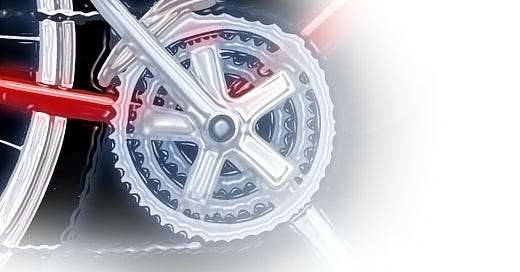Today, the streets of Naples could not be turned pink, instead swarmed by the joyous sky blue of a Scudetto-winning football team, and the sombre blue jerseys of another failed breakaway. This is not new, or even interesting in and of itself. Emotion is instead stirred by the speculation, thoughts as to what could have been on a day when it should have …
Keep reading with a 7-day free trial
Subscribe to derailleur to keep reading this post and get 7 days of free access to the full post archives.





